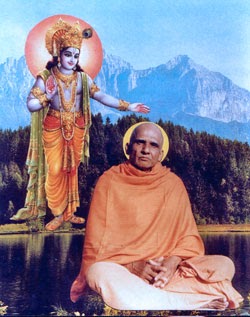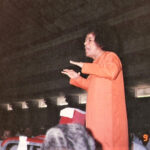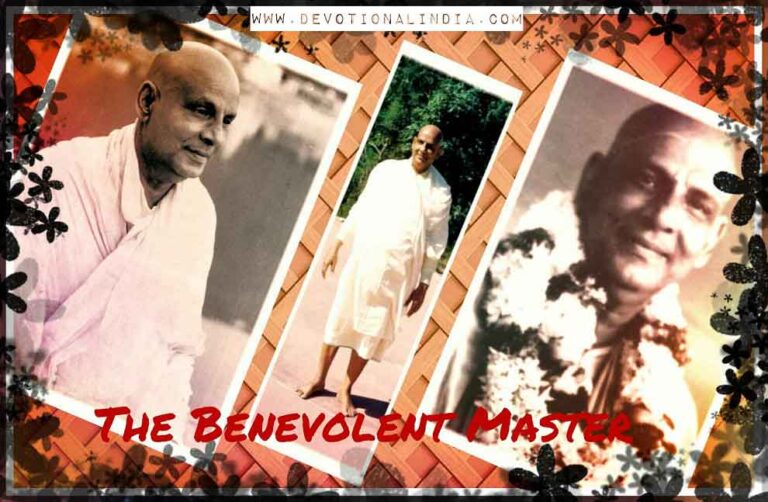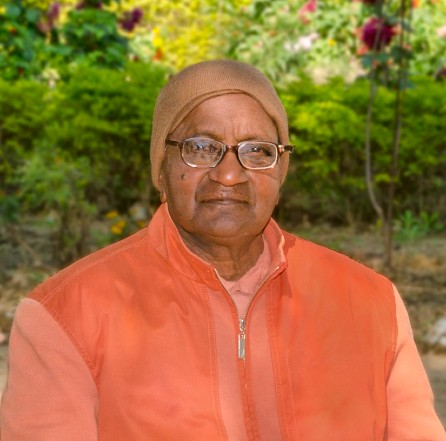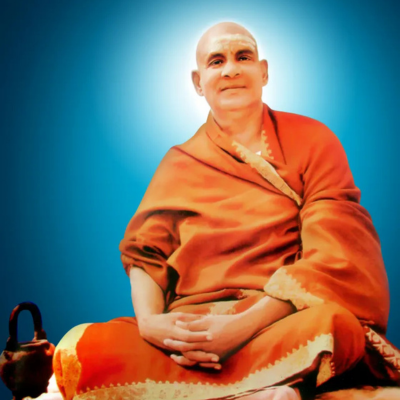Sant Eknath
Sant Eknath
“See God in all beings and serve them — that is true worship.”

Sant Eknath’s Literary Contributions.
Eknath’s impact on Marathi literature was immense. He is best known for his abhangas (devotional songs), ovis (narrative verses), and bharuds (dramatic compositions). His writings are remarkable for their clarity and eloquence, offering profound spiritual wisdom in simple terms that resonated with common people. Through these works, he helped others connect with the divine in their native language, Marathi.
Among his most significant works is the Eknathi Bhagavata, a Marathi commentary on the 11th book of the Bhagavata Purana. This commentary stands out for its insight and simplicity, emphasizing devotion (bhakti) as the core teaching of the Bhagavata. Eknath’s interpretation made spiritual teachings more accessible to the masses, promoting the spread of devotional practices.
Under Janardan Swami’s guidance, Eknath honed his spiritual and literary skills, preparing him for his later contributions to Marathi literature and devotional poetry.
Sant Eknath beautifully said, “Jo je vanchhil to te laho praanijaat” — meaning “May every being attain what they truly desire.” This line reflects his deep compassion for all living beings. For him, true devotion was not just about rituals, but about love, service, and purity of heart.
“If someone else’s happiness increases your sorrow, it is a sign of ego.”
― Sant Eknath
Teachings and Philosophy
Sant Eknath’s teachings focused on devotion, humility, and compassion. He stressed that true devotion goes beyond rituals and rests in pure love for God and selfless service to others. For Eknath, purity of heart and mind held the greatest importance, and he encouraged living a life guided by moral integrity.
One of Eknath’s central teachings was the practice of Nama-smarana—the continuous chanting of God’s name. He believed that chanting would purify the mind and elevate the soul. His abhangas frequently praised this practice, urging people to incorporate it into their daily lives.
He taught, “See God in all beings and serve them — that is real worship.” According to him, “One who has a pure heart finds God.” His verses guide us to live with truth, patience, humility, and respect. He strongly believed in unity, saying, “Do not abandon your faith, but never hate another’s.” Through his abhangs and writings, Sant Eknath spread the light of equality, devotion, and moral strength — values that continue to inspire generations even today.

From an early age, Eknath showed a strong inclination toward spirituality, inspired by the teachings of saints like Dnyaneshwar and Namdev.
His life was a shining example of forgiveness, love, and dedication to truth. Even today, his lines inspire people to live with compassion, humility, and devotion. Sant Eknath’s teachings remain timeless, showing us the path to inner peace and God through love and righteous living.
Through works like Eknathi Bhagwat and his numerous abhangs, he made spiritual knowledge accessible to common people in the Marathi language.

Sant Eknath’s teachings focused on devotion, humility, and compassion. He stressed that true devotion goes beyond rituals and rests in pure love for God and selfless service to others. For Eknath, purity of heart and mind held the greatest importance, and he encouraged living a life guided by moral integrity.
One of Eknath’s central teachings was the practice of Nama-smarana—the continuous chanting of God’s name. He believed that chanting would purify the mind and elevate the soul. His abhangas frequently praised this practice, urging people to incorporate it into their daily lives.
Legacy and Influence of Sant Eknath
Eknath’s legacy continues to inspire spiritual seekers today. His teachings left a lasting mark on the Bhakti movement and Marathi literature. His timeless values of devotion, humility, and compassion resonate across generations.
Sant Eknath’s life exemplifies the transformative power of devotion and spiritual wisdom. His teachings continue to guide those on the path of bhakti, reminding us of the timeless values of love, humility, and selfless service.
Inspiration
Eknath Maharaj inspired people through his simple living and deep thinking. He believed that God does not reside only in temples but in every living being. That’s why he taught, “See God in people, serve them —
source: BhaktiMarga














